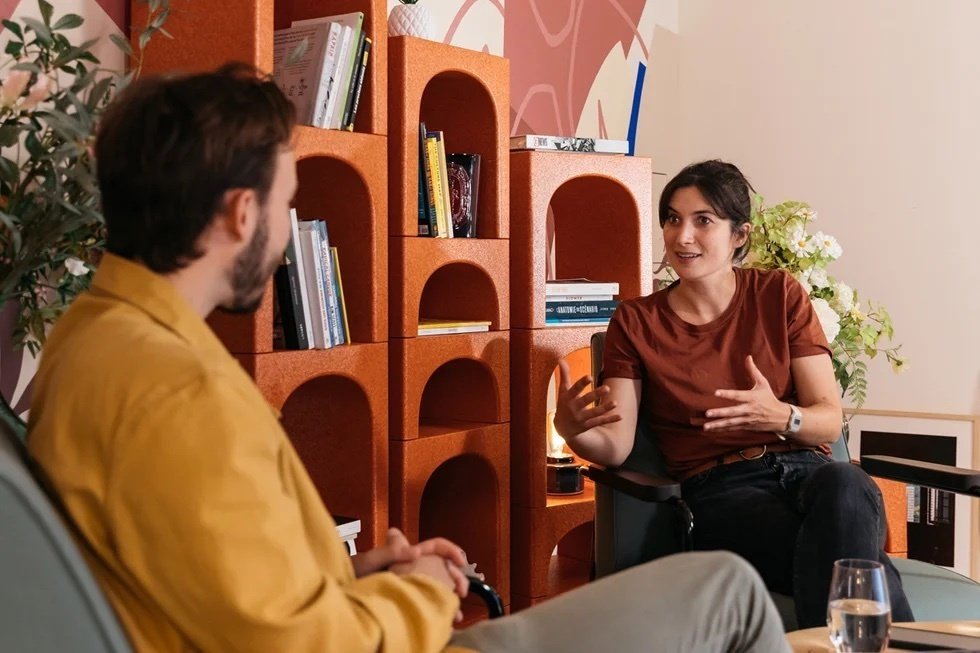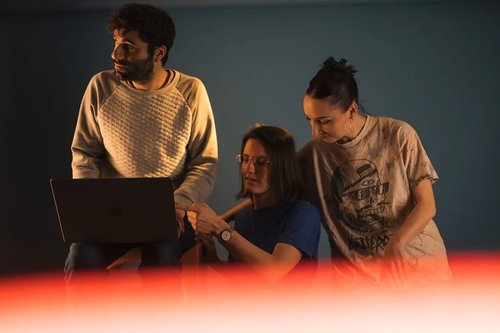Soft skills: how to showcase curiosity during a job interview
Dec 14, 2022
4 mins


Content specialist passionate about storytelling
In 2022 and beyond, innovation is the competitive differentiator that any future-forward company is looking to achieve. But where does all of this innovation come from, and how do organizations capture it to build something generation-defining? They hire curious people. They seek out those who question the status quo—lifelong learners who find problems and pursue new and exciting solutions. So if you want to wow that recruiter from your dream company, show them that you’re genuinely curious about the organization. While this may come naturally to some, it’s also a soft skill that can be trained and learned.
New York-based career coach Jess Wass shares that companies want employees that are prepared to move the business forward. She explains, “Employers want someone who can bring ideas and thoughtfulness to the role. They want more than just an employee who is going to do what they’re told to do.”
Curious people bring the most value to companies, so in order to set yourself apart during the interview process, show your recruiter and hiring manager that you’re this kind of person. Wass recommends the following three tips to demonstrate the sought-after soft skill of curiosity during the interview process.
1. Polish your cover letter
Showing curiosity during the interview process means putting your best foot forward. Wass recalls reviewing resumes as a hiring manager and the subtle mistakes that candidates frequently made. She says, “I remember seeing applications with the wrong company names or ones that were so generic it was clear that the person neglected to do their research.” Wass urges clients to put time into their resumes and cover letters.
Don’t send the same cookie-cutter application to every company. Show that you’re curious about what they’re doing, explain why you’re excited about the role and that you took the time to dig a bit deeper. Wass says, “Not only will this impress the hiring manager, but it also will lead to a higher level of conversation when you get to the interview stage.”
2. Show your knowledge
Before you start the official interview process, do your research. Wass recommends conducting informational interviews, networking with people at the company, and attending events where they might be present. Follow the company on social media, and read articles about them. Make it your mission to become an expert before you have your first interview. Share any insights you gathered throughout this process during the interview. Wass recommends that you say things like, “I saw you recently launched this product, how would my role support the marketing of it?”
If it’s a small company and you’re having trouble finding information about its activities research the industry. Have an idea of who the company’s competitors might be and where the industry is heading. For example, you could find an interview that the CEO gave about how their company is shaking up the industry and bring it up during the interview.
Another powerful piece of research you should always dedicate time to is learning more about who the hiring manager is. Take a look at their LinkedIn. Read posts they’ve shared. If they’ve written an article, read it and write down some comments and questions. When you get the chance to talk to them, let them know you’ve engaged with content about them (in a non-creepy way) and ask them questions. This is both flattering (the power of which should not be underestimated) and an easy way to show that you’re curious about the role and your future manager, and a good methodology to enrich your soft skills.
3. Ask questions
One of the biggest mistakes Wass sees candidates make is not asking questions. “When your interviewer asks if you have any questions, responding ‘no’ is not going to impress anyone.” Use this time to learn more about the company or role and to show your enthusiasm. Wass tells clients to come prepared with a list of questions that they’re actually interested in hearing the answers to. Asking a question for the sake of asking a question is going to come across as disingenuous. According to Wass, the best questions are ones that help you determine if the company will meet your needs. They should be open-ended and allow the interviewer to provide you with useful insight about the company. For example, avoid asking, “Is there a good work-life balance at this company?” Instead, ask what a typical work week might look like, or how people at the company maintain a positive work-life balance.
When it comes to preparing your list of questions, make sure not to re-ask something the recruiter has already answered. Have at least five prepared in the back of your head, and don’t be afraid to jot down other questions in response to information that is shared during the interview. Glassdoor recommends that you ask around two or three questions during the interview. Remember these answers and rate how happy you are with the responses. If you end up having to choose between multiple offers, this is something you can use to make your decision.
Often curiosity isn’t something you have to force, especially if it’s a deep-rooted soft skill of yours. Additionally, if you genuinely feel excited about a role or company, this will likely shine through during the interview process. If you find yourself bored talking to the hiring manager or lose the initial curiosity that pushed you to apply, take some time to reflect—though this doesn’t necessarily mean it’s the wrong job. Wass says, “If you’re super passionate about a company, that’s wonderful to have, but sometimes you just need a job.” Ultimately, you know yourself best, so if you can afford to be picky, then shoot for the job that makes you curious.
Don’t forget that curiosity is a two-way street. Pay close attention to the communication and interactions you have with a company. Are they curious about you? Wass shares that interview processes are a great way to get a sense of how you will be treated if you accept the job. If the company doesn’t seem to care about you and doesn’t exhibit the same level of curiosity and enthusiasm that you have, it might not be the best career move for you.
Photo: Welcome to the Jungle
Follow Welcome to the Jungle on Facebook, LinkedIn, and Instagram to get our latest articles every day, and don’t forget to subscribe to our newsletter!

More inspiration: Ace your job interview

Why are you leaving your job? Here's how to nail the answer
Caught off guard by 'Why are you leaving your job?' Here's how to flip this tricky question into a spotlight on your goals and potential.
Dec 24, 2024

Standing out in an interview: Creative responses to common questions
Answering common interviews with common responses isn't going to get you far in today's job market. Here's how to truly stand out!
Nov 26, 2024

The Pratfall Effect: Can screwing up in a job interview make you more likable?
Mistakes you make in a job interview could actually work to your advantage ...
Oct 14, 2024

How to bring up your long-term career goals in an interview
Be honest but strategic. The key is aligning your goals with the role while showing flexibility and ambition. Avoid faking it!
Sep 24, 2024

Is honesty the key to discussing your weaknesses?
Are your weaknesses holding you back in an interview? A bit of honesty can flip the script and make your flaws work in your favor.
Aug 21, 2024
The newsletter that does the job
Want to keep up with the latest articles? Twice a week you can receive stories, jobs, and tips in your inbox.

Looking for your next job?
Over 200,000 people have found a job with Welcome to the Jungle.
Explore jobs